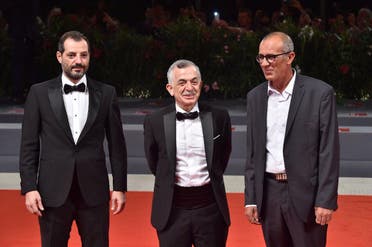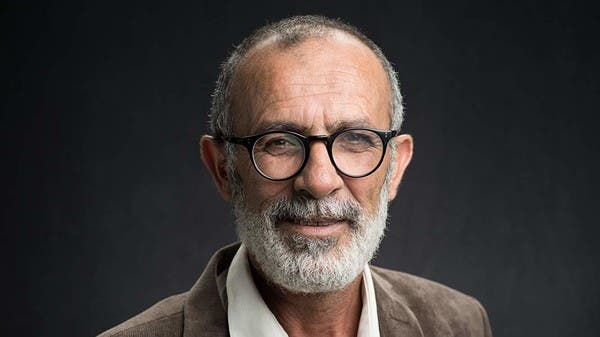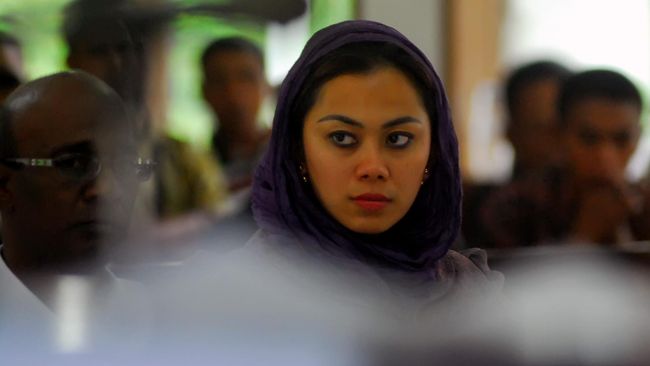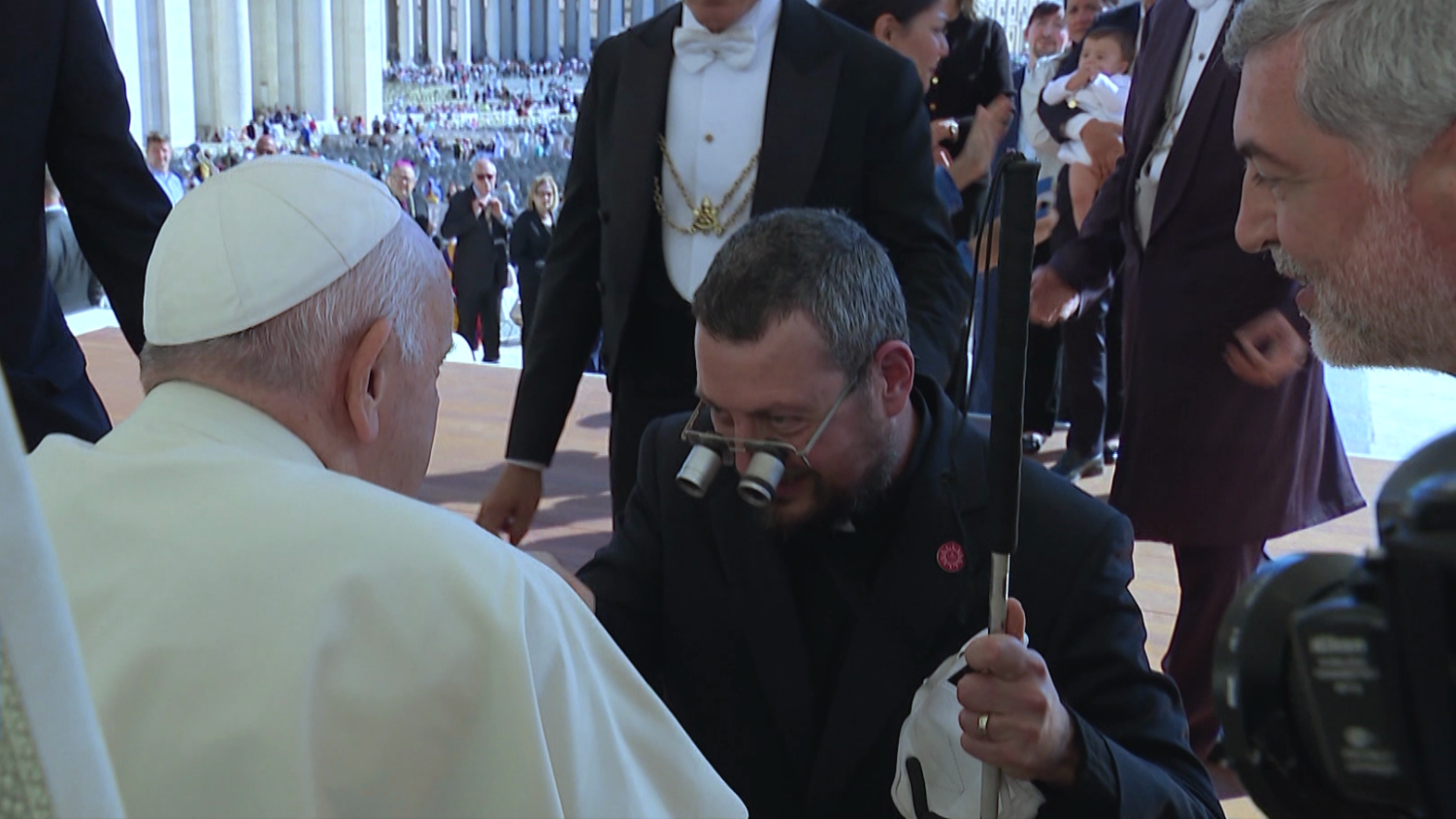You see him walking very calmly to the sides of the work, but his eyes insinuate and memorize all the details of the place and the people, he has an extraordinary memory capable of memorizing everything, and with his first participation in the Cairo International Film Festival of his 44th session with a short film, he expressed his great happiness for that participation through the film “Hamza… I’m Chasing Someone Chasing Me” in his interview with Al-Arabiya.net, where Palestinian artist Kamel Al-Basha he said he is very happy with this participation in a large and prestigious international festival like the Cairo Film Festival, because it contains a huge number of very important interactive workshops and seminars.
Isn’t this your first participation in the Cairo International Film Festival?
In fact, this is the second time attending the festival, where I attended the previous session with the film Curfew, which starred Elham Shaheen and Amina Khalil, directed by Amir Ramses, mainly because the Cairo Film Festival is considered one of the 15 major film festivals in the world, and my feeling of attending the festival this time is different, exactly where I discuss the issue of my country Palestine.
Kamel Pasha
How do you see the participation of your film “Hamza” in the Cairo International Film Festival?
My participation in the film “Hamza: I’m Chasing Someone Chasing Me” in the Narrative Short Film Competition at the 44th Cairo International Film Festival is a great honor for me, because Egypt means a lot to the Palestinians, beyond that that the Egyptians can imagine, and their bond with the Egyptians is not only emotional, but human and intellectual. Reaching the Cairo Film Festival, one of the most important film festivals in the world, is not easy and it opens the doors of the world to us. The film is very special to me, because it is quintessentially Palestinian, it also has a special aspect because it is produced and pocketed by Palestinians, and also because the film contains great acting talent, all of them. They had visions and one goal, which is to distribute a distinguished Palestinian cinematic film.
What prompted you to participate in this work?
Not because it’s a youthful experience, but because of the quality of the screenplay and the director Ward Kayal, who considers this work his first film job, then concessions arrive in terms of materials or an increase in working hours, just like the film was shot in the abandoned village of Al-Birwa which is the village of the late Mahmoud Darwish which is located in a mountainous area of Haifa. We put a lot of physical and muscular effort, but art is a great pleasure for me, and the art and film industry faces some problems, including the lack of a special authority for the industry and the Palestinian government’s contempt for artwork in general.

On the right is Kamel El Pasha
How did you feel about making this film?
I am proud of the Palestinian people’s awareness of the importance of cinema in communicating our cause to the world, and I recall that as soon as the donation door opened for the production of the film via the Internet, we found a stream of financial donations and in kind to the film crew depicted in donating money or providing meals to the crew or cars to facilitate travel and so on, and we have resorted to this method used in the absence of foreign funding, especially in films serving Palestinians Therefore, it is It can be said that the work was produced with popular Palestinian funding, and it is not the first work produced in this way, nor will it be the last.
Who is “Hamza”? What difficulties did you encounter during filming?
“Hamza” is a Palestinian fighter approaching the age of 60. He is haunted by delusions until he decides to face them courageously, following his release from occupation prisons and the martyrdom of his friend. tired, including running scenes and shooting in forests and mountainous areas, and said the most difficult scene he faced in the film was the scene where he carried one of his colleagues in the film, who weighs more than 60 kilograms, and walked with him for a long distance, and that these scenes were shot more than once, as well as running a lot, and shooting in forests and mountainous areas among grass and brambles, as we purposely presented more than one angle to the audience during the film of life and left the viewer with the imagination to expect events according to his own life and this is the most important feature of the work.
Since the time you showed your new series, “Room 207”, has it been a great success?
Praise God, the series is currently broadcast on the “Watch” platform, and I am very happy with the audience’s reactions to the first episodes of the work, and I feel very happy for my participation in the Egyptian artwork, despite my presence in works from Japan, Belgium, America and many countries Al-Arabiya, indicating his attempt to present new roles that are not repetitive or worn out, “I don’t want to turn into a typical actor”.
What were the reasons that prompted you to participate in this work?
The character “Mina”, which I embody, is full of ambiguity and pain, besides the fact that the script attracted me from the very first moment, even if the Egyptian dialect was the most difficult thing I had to face during the preparation period , but I have overcome that obstacle to a very large percentage, after reading the text in the Palestinian dialect, and I think I have succeeded, in conveying personal feelings and deepening them.
Are there any new businesses?
With the start of the new year, the Al-Alamy series is scheduled to be screened, produced by Disney Plus, and I finished shooting it last April, and its story revolves in an eight-part suspenseful setting, on a band of i thieves stealing a safe and gang members are prosecuted and he embodies the full role of treasure thief being an expert.
Furthermore, there are currently some negotiations to present an Australian series, consisting of only 6 episodes, which revolves around the Arab communities there, and I have also contracted to present a Japanese play, which deals with the suffering of Palestinian prisoners during the occupation prisons, and this is the first time I am presenting a play with a Japanese band, so it is a new and important experience for me, especially since I am presenting the lead role, which is the Palestinian prisoner, and it will be shown in Palestine for one week next January, after which I will perform 12 shows in Japan.


